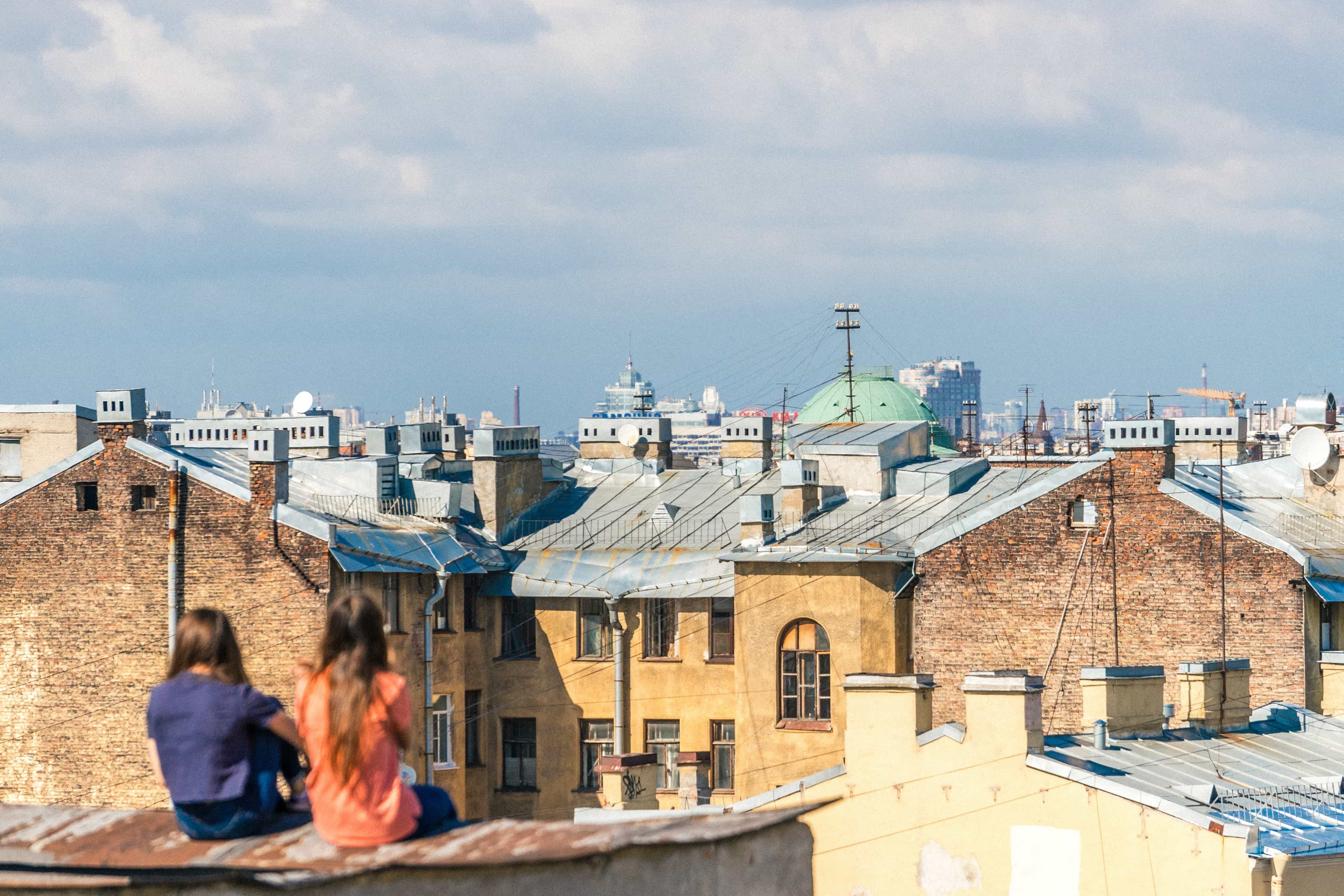14 Life-Changing Benefits of Living Abroad
Learn how living abroad can impact your personal and professional development
Federica
There’re many reasons to relocate abroad — for work, study, love, retirement, a fresh start, or a better quality of life. No matter what your reason is, living abroad is worth it; if not for the numerous benefits –– like making life-long international friends and having better career prospects –– then at least for unearthing what you don’t like and what you’re capable of doing on your own.
Whether you’ve already decided to settle in another country or you’re on the fence, this list will open your eyes to 12 great reasons why thousands of people are choosing to live overseas each year.
1. Stepping out of your comfort zone

Moving abroad is not just about stepping out of your comfort zone –– it’s more like jumping. This is especially true when you’re leaving a small, quiet city to find yourself in a bustling metropolis. Discovering houses for rent in Barcelona or searching for homes to rent in Milan, takes you out of your comfort zone and teaches you plenty of valuable lessons.
Not only will you find yourself in a new city, where you may or may not speak the language but you’ll also have to find housing abroad, plan your finances, make new friends, embrace a new culture, and much more. But don’t see this as an anxious, overwhelming experience.
Most people who move abroad say that they needed this boost to understand their true potential or simply to get out of the rut of their everyday life.
2. Becoming self-reliant and resourceful
When you live abroad, there’s a lot you need to do yourself. You’ll have to face new challenges, bureaucracy, deal with homesickness, manage budgets, etc. There’s no doubt you’ll have hundreds of questions. How do I pay taxes here? Or even simple things like how do I change the lightbulb?
Even though you might not have all the answers at first, you’ll be surprised at your resilience and resourcefulness. Doing things yourself, things that you never thought you could do yourself or manage alone –– let alone in a foreign environment –– will make you realise that you got this! The new skills that you develop will make you feel strong and your self-confidence will skyrocket. You’ll feel prepared for anything that comes your way.
3. Adapting to situations easily
Living abroad will mean coming across unexpect situations or perspectives that are deeply, culturally rooted. For example, finding out that almost everyone cycles in The Netherlands as it’s the most popular means of public transport. Or learning that you’ve to be quiet on Sundays in Germany because of the “quiet hours”.
The local culture, tradition, and beliefs of people will be different and getting used to these differences might feel uncomfortable. But adapting to these new situations is the best way to integrate. And remember, adapting doesn’t mean changing your own beliefs or habits for others. It just means being respectful of others and being accommodating.
4. Developing cultural awareness

Living abroad will heighten your awareness of the many fascinating cultures around you. If you live in a small town, you’ll experience total cultural immersion; perfect for language learners. If you’re planning to live in a metropolitan city like Munich or Rome, you’ll come across a multitude of languages on the streets.
Having a mix of local and international friends will also introduce you to new music, local cuisines, foreign movies or shows, and so much more. You’ll even uncover some interesting cultural habits and find out just how true those stereotypes are or aren’t. For instance, in Germany almost every video is dubbed and in Spain siestas are on their way out.
5. Making friends from all over the world

With so many people deciding to work or study abroad these days, there’re plenty of vibrant expat communities for you to become part of or live close to. The best part is that these people are in the same boat as you and connecting over shared experiences or interests is a great way to make lifelong connections abroad.
So if you’re looking for an opportunity to make new foreign friends, why not spark a conversation at work; join the many student organisations at university, such as Erasmus Student Network; join a sport club; take up a hobby; or use apps like Bumble to meet likeminded people.
Nervous? Don’t push those feelings away. At some point or other, you may have to deal with homesickness or some degree of a culture shock. But it’ll pass. As long as you’re open to jumping into conversations, saying yes to those invites, and exploring the city with your new acquaintances, you’re going to have a new group of friends before you know it!
6. Having more opportunities to travel

One of the best “side effects” of moving abroad is the newfound love for exploring new places. And since most European cities are well connected by multiple modes of public transport, you’ll be able to visit nearby cities or countries easily. If you’re a student or below 26, you’ll most likely get free entry to museums and big discounts on travel using a Rail Pass.
Imagine living in Barcelona and visiting places near Barcelona, Valencia or Paris.
7. Learning how to effectively manage a budget

This might be the very first time that you’re living on your own. Or it’s the first time that you’re dealing with a country that has a different currency or a significantly different cost of living. Figuring out how much to budget or more importantly, how to stick within budget is a life-saving skill. You don’t want to spend all your hard earned money within a week and survive on cup noodles for the rest of the month.
That’s why it’s important to research the cost of living to make a realistic budget. And this means knowing how much you’ll spend on rent, groceries, leisure, and more. The internet is resourceful and you can easily look up cost of living in Spain or specifically look for living on a student budget in a city like Milan.
Bad at sticking to a budget? It helps to set goals and save up for something. You can also download one of the free expense tracking apps, at least for the first few months, to know how much you’re spending and on what. Anything leftover? Put it to savings for a rainy day or treat yourself to something nice!
8. Discovering how to manage relationships

Once you’re away from home, you’re going to learn a lot about keeping up with multiple types of relationships. Not only will you need to remain in touch with your friends and family back home, who may be in a completely different time zone, but you’ll also need to set aside time to nurture the new relationships that you’re trying to make.
If you’re finding it hard to manage, read more about how to maintain long-distance relationships.
9. Learning a new language

Unless you’re moving to an English speaking country, chances are that you don’t know the local language of the area. Or maybe you studied it in middle school but that’s not going to cut it in the “real world”.
While English can usually get you by in most student or expat communities, learning a bit of Spanish before you move to Spain or German before you take off to Austria or Germany will make your life so much easier.
And if you’re moving to integrate completely and become fluent, then you’re in for a treat once you arrive. You’ll pick up even more from everyday interactions, such as going to the supermarket and interacting with the locals.
10. Improving both verbal and non-verbal communication
Different cultures have different ways of communicating. Some cultures are more expressive with their emotions and hands, whereas other cultures prefer brevity and directness. When you’re living abroad and are surrounded by a multicultural group of people, you’ll notice how each person communicates, both verbally and non-verbally. Over time, you’ll become sensitive to these differences and communicate with others in a way that is respectful and inclusive. An asset in this multicultural world!
11. Better career prospects

The biggest reason people move overseas is because they’ve found a job abroad. Maybe you want to leave overworking behind or the lack of paid leave and work in countries like The Netherlands or Germany where these things are given more importance.
No matter what your reason is, a great benefit of moving abroad for work includes a better job prospect. And maybe you don’t even have to move abroad. If you’re already studying abroad, then finding a job or internship would be a great next step to better your career prospects in the long run.
When you work or intern abroad, you’re able to show that you’re someone who is willing to take risks, you’re adaptable, independent, quick to learn, and good at intercultural communication; all skills that’re valuable in the eyes of an employee.
12. Expanding your professional connections

When you move abroad, it’s highly likely that you’re on your own and without a solid network to rely on. When it comes to switching jobs or finding your first job, connections can be crucial. Especially in countries like Italy or Spain where word of mouth and strength of the professional relationship can often sway who gets the job (sometimes even before it is publicly advertised).
So it’s very important to take some time and be a little brave when it comes to making new professional connections. Attend networking events or if you’re more of an introvert, add your colleagues and other thought leaders as a LinkedIn connection. Either way, stay in touch and develop that relationship. You never know where your next job will come from!
13. Gaining a global mindset

It doesn’t matter if this is your first time living overseas or you’re a seasoned expat; moving abroad to a new country will undoubtedly help in developing a global mindset.
Having a global mindset means gaining cultural awareness, becoming aware of your biases, and becoming great at adapting to people from different cultural backgrounds. And while you can read or watch videos to prepare yourself, there’s no better way to gain a global perspective than to live abroad.
Having the adventure of working or studying abroad is a fantastic way to find yourself in circumstances that you’d never encounter otherwise. It presents you with an opportunity to “learn by doing”. Over time, you’re bound to develop a global mindset without even trying hard.
14. Learning Patience

When you live in a new city, there’ll always be a learning curve. You’re going to get lost a few times on your way back home and communicating with a language barrier and making new friends can be difficult at best. But it’s all about pushing through and having the patience to make it through the adjustment period. Like with all things, living abroad gets easier with time.
Ok, I’m sold. But I can’t decide where to live
Love the idea of settling in another country? Some of the best countries to start a new life in 2024 include:
- Germany- developed and diverse. High cost of living with high average salary.
- Spain- great weather, warm people, low cost of living and average salary.
- Italy- great food and weather, with low cost of living and mid-low average salary.
- The Netherlands- historic, yet innovative, this country has a great economy and the people have impecabbale English skills. The cost of living and average salaries are high.
- United Kingdom- modern powerhouse where diversity thrives. It has a high cost of living with high average salary.
- France- land of food, fashion, art, and stunning landscapes. It has a high cost of living with high average salary.
Please reach out to content@housinganywhere.com if you have any suggestions or inquiries about the content on this page.
Related articles
In this article
1. Stepping out of your comfort zone
2. Becoming self-reliant and resourceful
3. Adapting to situations easily
4. Developing cultural awareness
5. Making friends from all over the world
6. Having more opportunities to travel
7. Learning how to effectively manage a budget
8. Discovering how to manage relationships
9. Learning a new language
10. Improving both verbal and non-verbal communication
11. Better career prospects
12. Expanding your professional connections
13. Gaining a global mindset
14. Learning Patience
Ok, I’m sold. But I can’t decide where to live
Start your safe accommodation search
The best way to be certain that you’re not being scammed is to work with a trusted housing platform
Start my search

